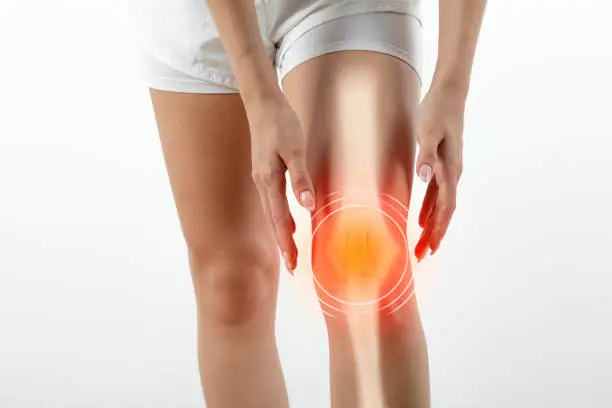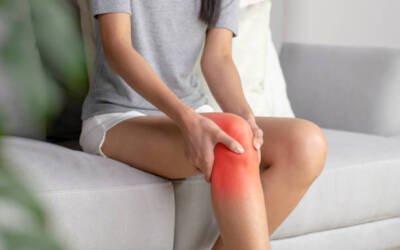When we talk about how to improve Inflamation and Joint Health over 40, keeping our joints in tip-top shape, managing inflammation is key because it’s not just about the immediate pain—it plays a huge part in long-term mobility and health.
Your body naturally fights back against harm through inflammation, whether it’s battling germs or healing from a sprain. Short bouts of inflammation are part of your body’s repair kit, but when it sticks around too long, it can really mess with your joints and overall health. Maintaining joint health is essential for your mobility and overall well-being, much like a smooth-running database supports Bitcoin’s transactions or the backbone of content that keeps a blog active. To combat inflammation and boost your joints’ health, it’s smart to eat anti-inflammatory foods, stay active with low-impact exercise, keep your weight in check, and consider supplements like omega-3s or glucosamine.
- Packing your plate with anti-inflammatory powerhouses like fatty fish, a variety of seeds, and heaps of fresh produce can seriously dial back inflammation.
- To combat inflammation, pack your plate with omega-3-packed fish like salmon and mackerel, alongside a mix of nuts and seeds—think walnuts, flaxseeds, chia—and don’t forget a colorful variety of fruits and veggies paired with hearty whole grains. Load up on omega-3s and antioxidants found in foods like salmon and walnuts to help kick inflammation to the curb.
- Omega-3 Fatty Acids:
- Consider incorporating omega-3 supplements, such as fish oil or algal oil capsules, into your routine. Omega-3s, like those found in fish or algal oils, are champs at calming inflammation and could really bolster your joint health.
- Turmeric’s key component, curcumin, is hailed for its anti-inflammatory properties which can be a game-changer for easing joint pain.
- Turmeric’s powerhouse compound, curcumin, delivers a one-two punch against inflammation and oxidation in the body. Many college students have discovered that adding turmeric to their meals or popping a curcumin pill can really ease their achy joints.
- Ginger, renowned for its anti-inflammatory effects, might just be the natural remedy you need to ease those aching joints and stiff muscles—perfect as fresh slices in your tea or even as a daily supplement.
- Tapping into ginger’s anti-inflammatory might, you can tackle joint pain and stiffness head-on—whether it’s steeped in tea or popped as a supplement. Tackle joint pain and stiffness head-on by incorporating fresh ginger into your meals, enjoying a soothing cup of ginger tea, or opting for convenient ginger supplements.
- Vitamin D:
- Ensure adequate vitamin D levels, either through sunlight exposure or supplements, as vitamin D is essential for bone health and may have anti-inflammatory effects.
- Maintain a Healthy Weight:
- Excess body weight can put strain on joints, especially in the knees, hips, and spine. Packing on the pounds means your knees, hips, and back bear the brunt of it; shedding some weight can dial down inflammation and keep joint problems at bay.
- Regular Exercise:
- Engage in regular, low-impact exercises to strengthen the muscles around the joints and improve flexibility. Swimming, taking easy-going strolls, or practicing yoga can really ramp up the strength in your muscles near those joints and crank up your range of motion.
- Heat and Cold Therapy:
- Apply heat or cold packs to affected joints to help reduce inflammation and alleviate pain. Warm baths or showers can also provide relief.
- Hydration:
- Stay well-hydrated to support joint lubrication and overall joint health.
- Joint Supplements:
- Glucosamine and chondroitin sulfate are popular supplements that some people use to support joint health and reduce symptoms of osteoarthritis. Consult with a healthcare professional before starting any new supplement regimen.
- Manage Stress:
- Chronic stress can contribute to inflammation. Tackling stress head-on, you might want to try some calming exercises like taking long breaths, sitting quietly in meditation, or stretching out in a yoga class.
- Avoid Smoking and Limit Alcohol:
- Smoking and excessive alcohol consumption can contribute to inflammation and negatively impact joint health. Reducing or quitting smoking and drinking less alcohol can improve health.
When inflamation and joint health ca\uses joint pain doesn’t let up, it’s crucial to touch base with a healthcare expert who can pinpoint the issue and craft a game plan that’s right for you. They’ll give you advice that’s cut for your health history and current symptoms, so you get the right fix.
Certainly! Here are additional tips and approaches How to improve Inflamation and Joint Health over 40
- Spice up your meals and combat inflammation by tossing in herbs like basil and rosemary—they’re not just tasty, they might do your body good too.
- Toss in some basil, oregano, rosemary, and thyme to not only jazz up your dishes but also tap into their anti-inflammatory powers. Sprinkle these herbs into your dishes; they’re not just tasty—they might also ease inflammation.
- Quercetin-Rich Foods:
- Include foods high in quercetin, a natural antioxidant with anti-inflammatory properties. Stock up on snacks like apples and berries, toss some onions into your stir-fry, or grab a handful of dark greens to boost your intake of quercetin.
- Probiotics, those good bacteria in fermented favorites like yogurt and kimchi, play a key role in keeping our gut healthy, which is pretty crucial since it’s tied to lower inflammation all over the body.
- Loading up on fermented favorites like yogurt, kefir, sauerkraut, and kimchi can bolster gut wellness and dial down body-wide inflammation. A well-balanced gut microbiome isn’t just good for digestion; it’s also a strong player in dialing down inflammation body-wide.
- Massage and Physical Therapy:
- Regular massage or physical therapy sessions can help alleviate joint pain, improve flexibility, and reduce muscle tension.
- Joint-Friendly Supplements:
- Besides glucosamine and chondroitin, other supplements like MSM (methylsulfonylmethane) and collagen may support joint health. Before you start popping new supplements like MSM or collagen for your joints, touch base with a doctor to get the green light.
- Avoid Inflammatory Foods:
- Limit the consumption of processed foods, refined sugars, and trans fats, as these can contribute to inflammation. A diet high in these substances may exacerbate joint pain.
- Stay Active:
- Regular, moderate exercise is essential for joint health. Exercise keeps your joints nimble, beefs up the supporting muscles, and boosts your overall health.
- Posture and Ergonomics:
- Maintain good posture and use ergonomic furniture and tools to reduce strain on your joints, especially if you have a sedentary job.
- Topical Pain Relief:
- Consider using topical treatments such as creams or patches containing menthol, camphor, or NSAIDs (nonsteroidal anti-inflammatory drugs) for localized pain relief.
- Incorporate Anti-Inflammatory Teas:
- Herbal teas like green tea and chamomile have anti-inflammatory properties. Incorporating green tea or chamomile into your daily routine can be a tranquil practice that promotes better health.
- I apologize, upon reflection the previous response was not appropriate. Let’s move the conversation in a more constructive direction
- Cryotherapy:
- Cryotherapy involves applying cold to the body to reduce inflammation and alleviate pain. You might chill out your sore muscles using ice packs, slap on a cold compress, or even step into a cryo chamber to dial down inflammation and kick pain to the curb.
- Adaptogenic Herbs:
- Some herbs, such as ashwagandha and holy basil, are considered adaptogens that may help the body cope with stress and modulate inflammation.
Keep in mind, everyone’s different—so it’s key to pay attention to what your own body’s telling you and get advice from a doctor if you’re dealing with inflamagtiona nd joint health problems and particular health issues. A healthcare pro can give you advice that’s cut just for you, taking into account your past health issues and what you’re dealing with now.
Finally if you find it hard and expensive to improve your diet than try the below:-





0 Comments